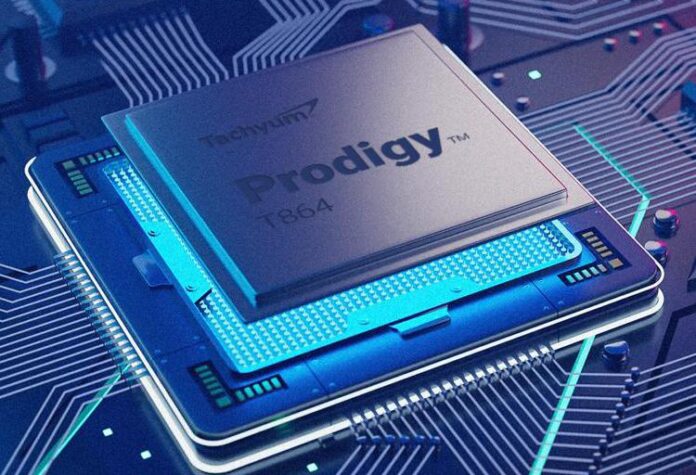- Tachyum has introduced the Prodigy ATX Platform, an affordable AI workstation with a powerful 96-core processor.
- The system boasts 1TB of memory and is designed to excel in running Large Language Models (LLMs) efficiently.
- Despite doubts about its economic viability, Tachyum’s CEO remains optimistic about the platform’s potential to democratize AI capabilities.
Tachyum, a startup focusing on making powerful processors, claims that their Prodigy Universal Processor can match up against many Nvidia H200 GPUs. They boast about its 192 cores and 5nm size, saying it’s way better than other processors for cloud tasks and beats GPUs for AI by six times.
Now, they’ve launched the Prodigy ATX Platform, an AI workstation costing just $5,000. It’s meant to handle complex AI tasks and comes with a whopping 1TB of memory.
The key feature is its 96-core Prodigy processor, which uses only half of its capacity to save power and cost, making it more affordable.
Great for LLMs This system packs 1TB of DDR5-6400 SDRAM, giving it super-fast data access. It’s designed with three PCIe x16 5.0 slots, three M.2-2280 NVMe slots, and SATA connectors for storage drives.
Tachyum claims this setup is perfect for running LLMs, which need lots of memory. They say just one Prodigy system can handle a ChatGPT4 model with 1.7 trillion parameters, a task that would require 52 NVIDIA H100 GPUs at a much higher cost and power usage.
Experts estimate that the system components, excluding the Prodigy processor, cost around $4800. But Tachyum’s CEO, Dr. Radoslav Danilak, stays positive, saying the system’s AI power will help all kinds of organizations compete in AI, regardless of size.
Dr. Danilak believes generative AI will become essential much sooner than expected, making AI crucial for websites, chatbots, and other tools. He thinks Prodigy’s capabilities will make running LLMs easier and cheaper than current CPU + GPU setups, giving smaller players a chance in the AI game.
The launch of the Prodigy ATX Platform has faced several delays, with the latest plan aiming for the second half of 2024 for the processor’s release. People are curious to see if Tachyum can keep its promises and shake up the AI world.

